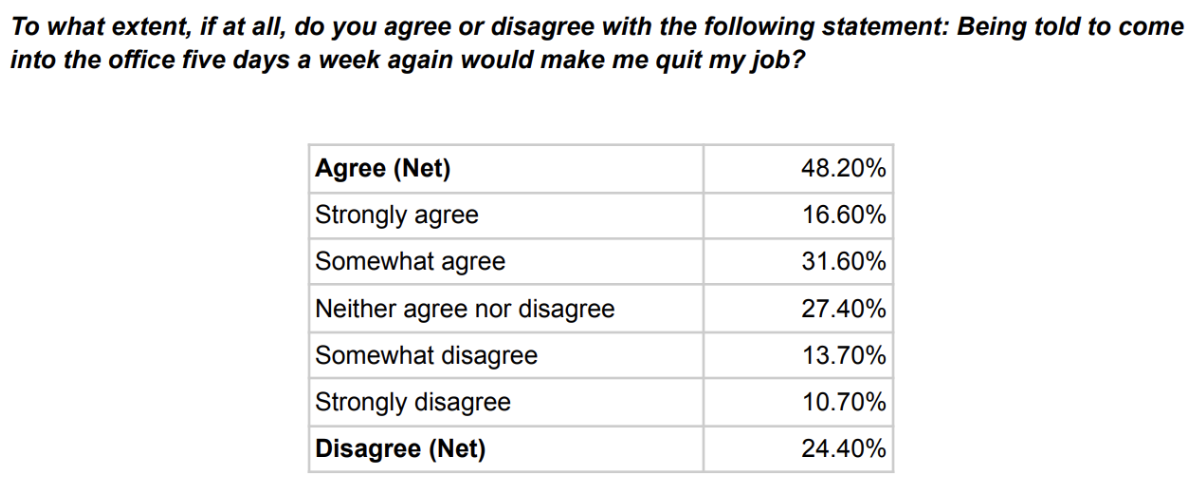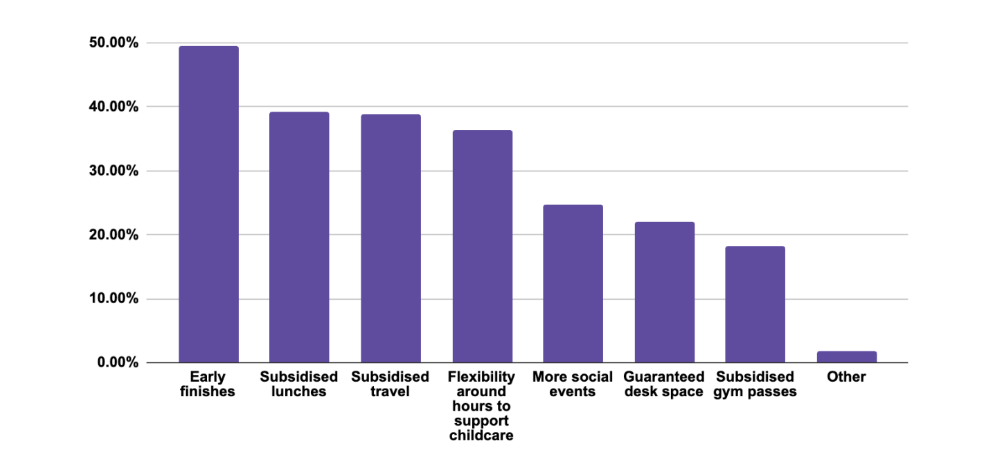- 2 Minute Read
- 14th October 2024
50% of Employees Would Quit if Forced Back to the Office!
The Rise of Hybrid Work: Why Traditional Office Schedules Are Fading
The world of work is changing—fast. In a recent survey of over 2,000 UK workers which revealed preferences and attitudes towards work environments, it was discovered that: almost half of employees would consider quitting if they were forced to return to the office full-time. That’s right—50% of workers are ready to say goodbye to the daily commute and embrace a more flexible future. Only a small portion—24.4%—stood by the traditional office schedule. So, what's driving this shift, and what can businesses do about it?

Why Perks Are the Secret to Attracting Talent
Here’s where it gets interesting: nearly half of the workforce believes perks are the key to making office life more appealing. But the type of perks workers want varies drastically across generations, showing a clear divide in workplace preferences.
The Generation Gap: What Younger Workers Want (and Older Workers Don’t)
Younger employees (ages 18-24) are the biggest advocates for office perks. In fact, 70% of them think perks should be part of the deal if they're expected to show up in person. Compare that to the older crowd (aged 55+), where only 33.5% share the same view. This highlights a generational shift—while older employees may be more comfortable with traditional work structures, younger workers are seeking something more.
What Perks Make Office Life Worth It?
So, what are these must-have perks? Here’s what the survey found:
- Early finishes: 49.5% want a shorter workday
- Subsidized lunches: 39.2% would love a free or discounted meal
- Subsidized travel: 38.8% want help with their commute
- Flexible hours for childcare: 36.4% of workers value flexible schedules to juggle family life

Clearly, perks are more than just a “nice-to-have”—they’re becoming essential for attracting and keeping top talent.
What This Means for Employers: Adapt or Risk Losing Your Best People
As the workplace evolves, companies need to keep up. Here are three key takeaways for businesses:
1) Embrace Hybrid Work
Offering a mix of remote and in-office options isn’t just a perk—it’s becoming a necessity. Flexibility is no longer a “bonus,” it’s an expectation.
2) Customize Your Perks Program
Different generations want different things. Younger workers crave flexibility and perks, while older workers may still prefer more structured environments. Tailoring your benefits to your diverse workforce can keep everyone happy.
3) Understand Generational Preferences
One-size-fits-all approaches are a thing of the past. Understanding the needs of each age group will help you craft a workplace culture that resonates with all your employees.
Conclusion: Perks and Flexibility Are the Future
As businesses continue to navigate the post-pandemic world, one thing is clear: hybrid work and appealing perks are more than trends—they’re the future. To stay competitive, companies must embrace flexibility and offer perks that resonate with today’s diverse workforce. By doing so, you’ll not only retain top talent but also create a more motivated and engaged team, ready to tackle the challenges ahead.
